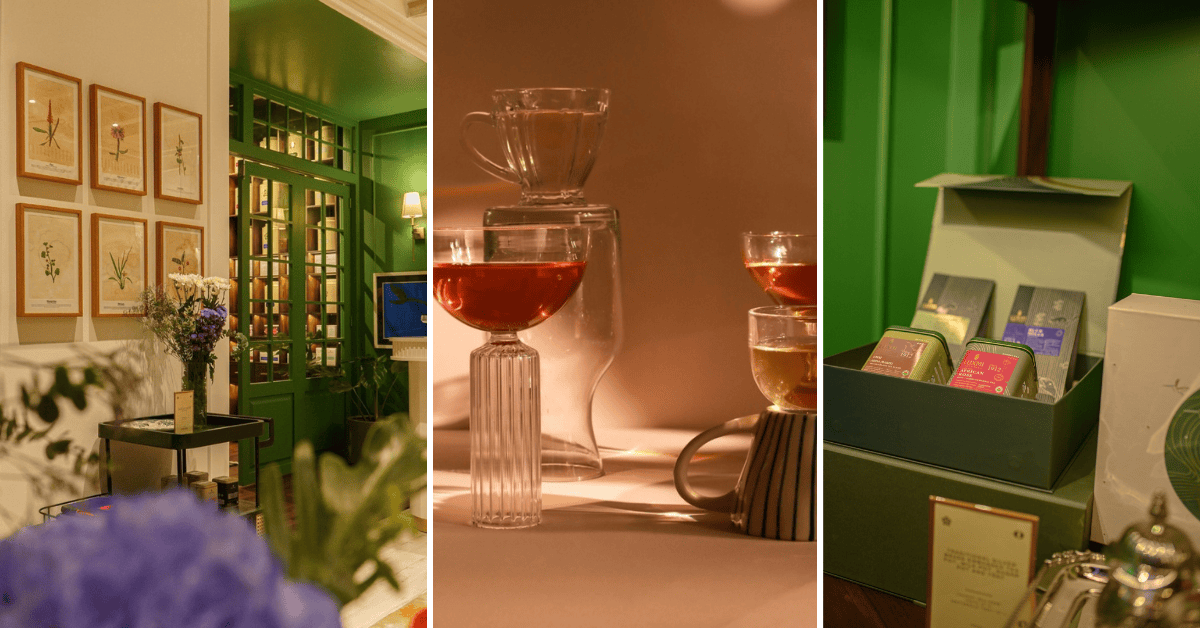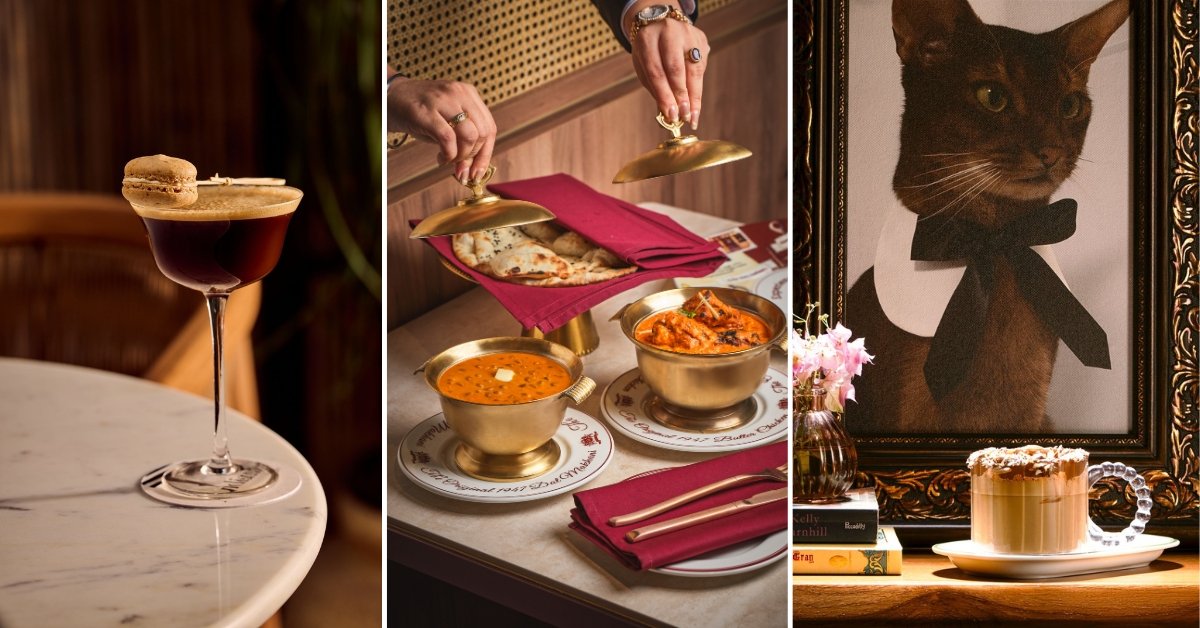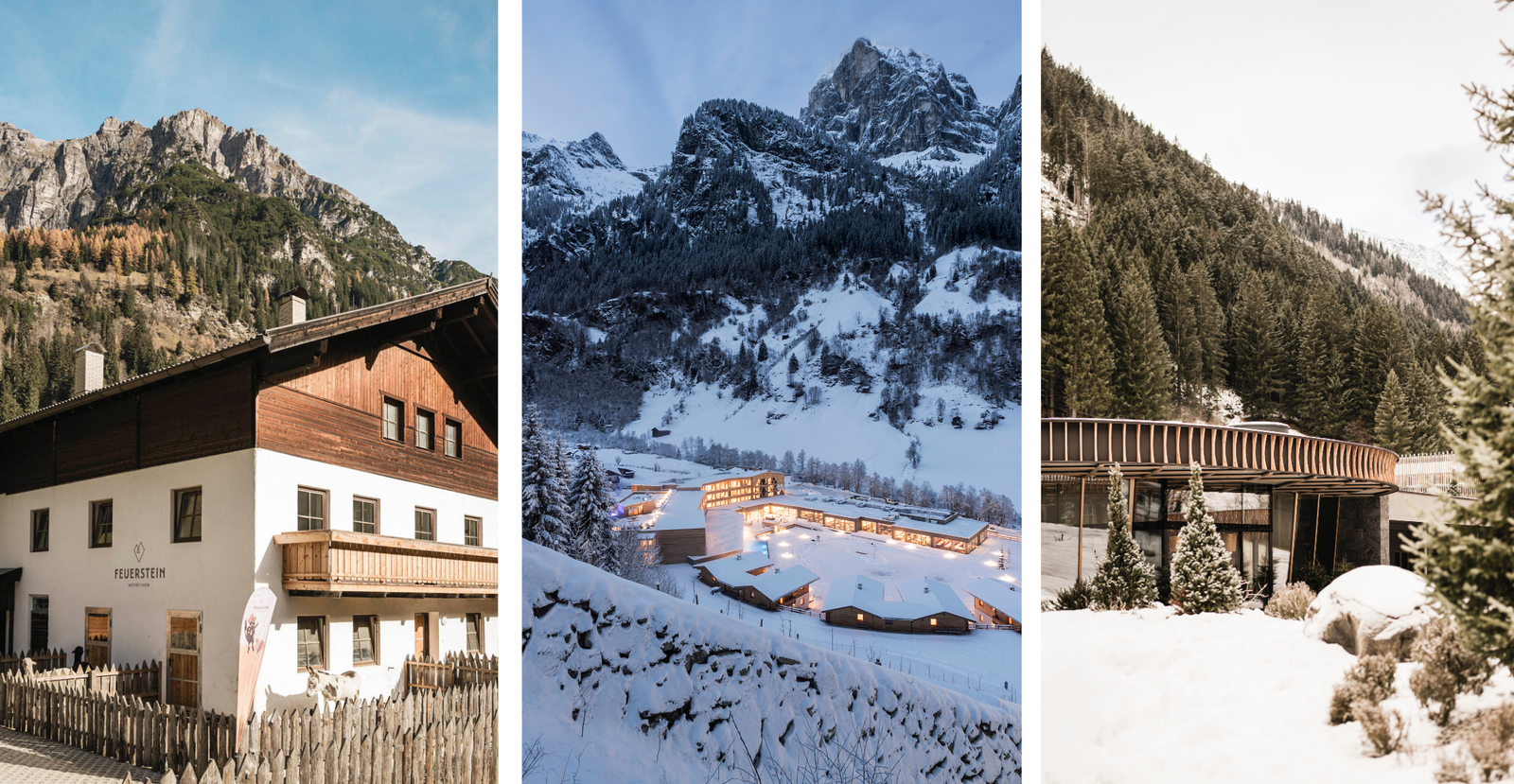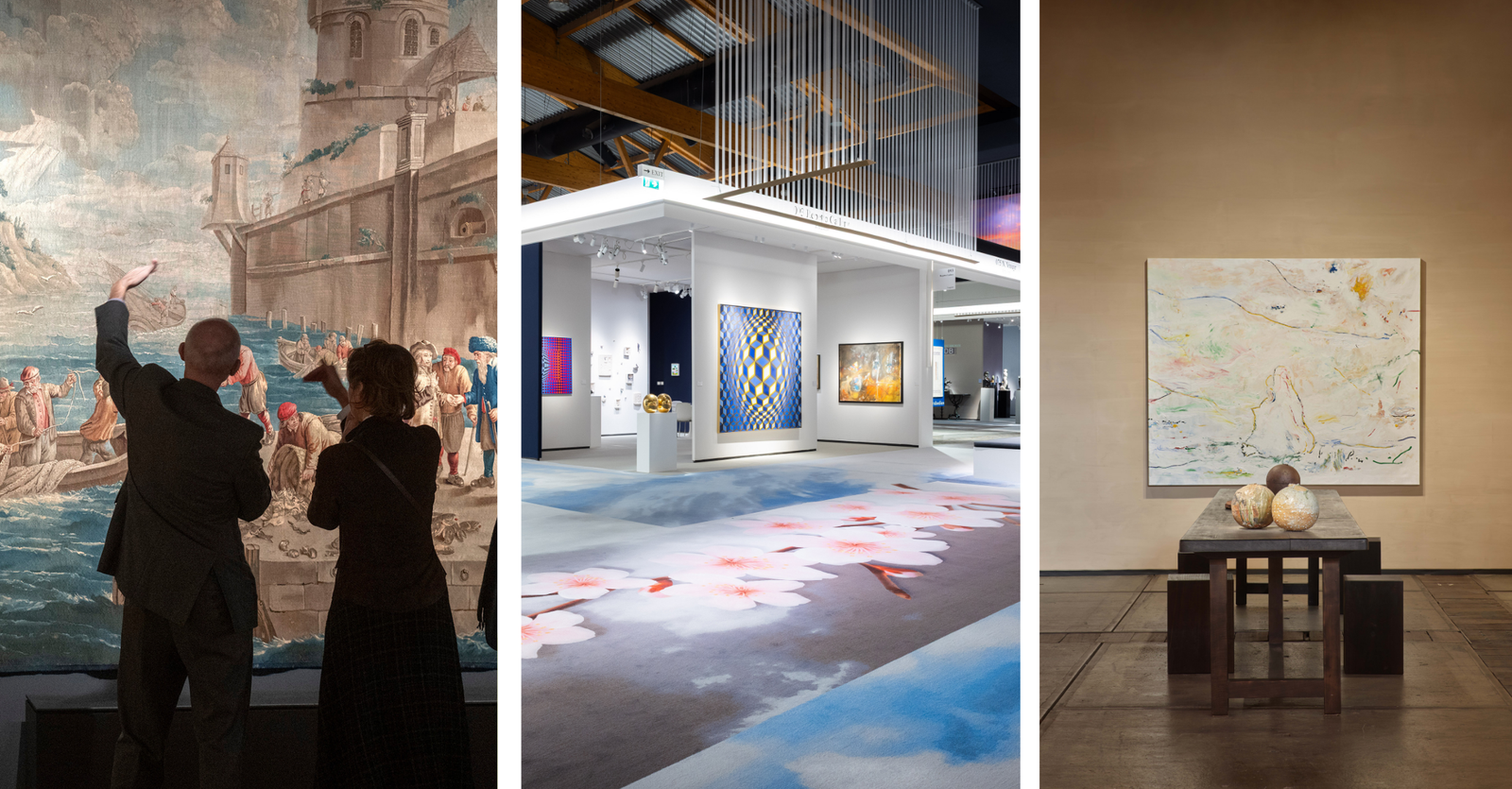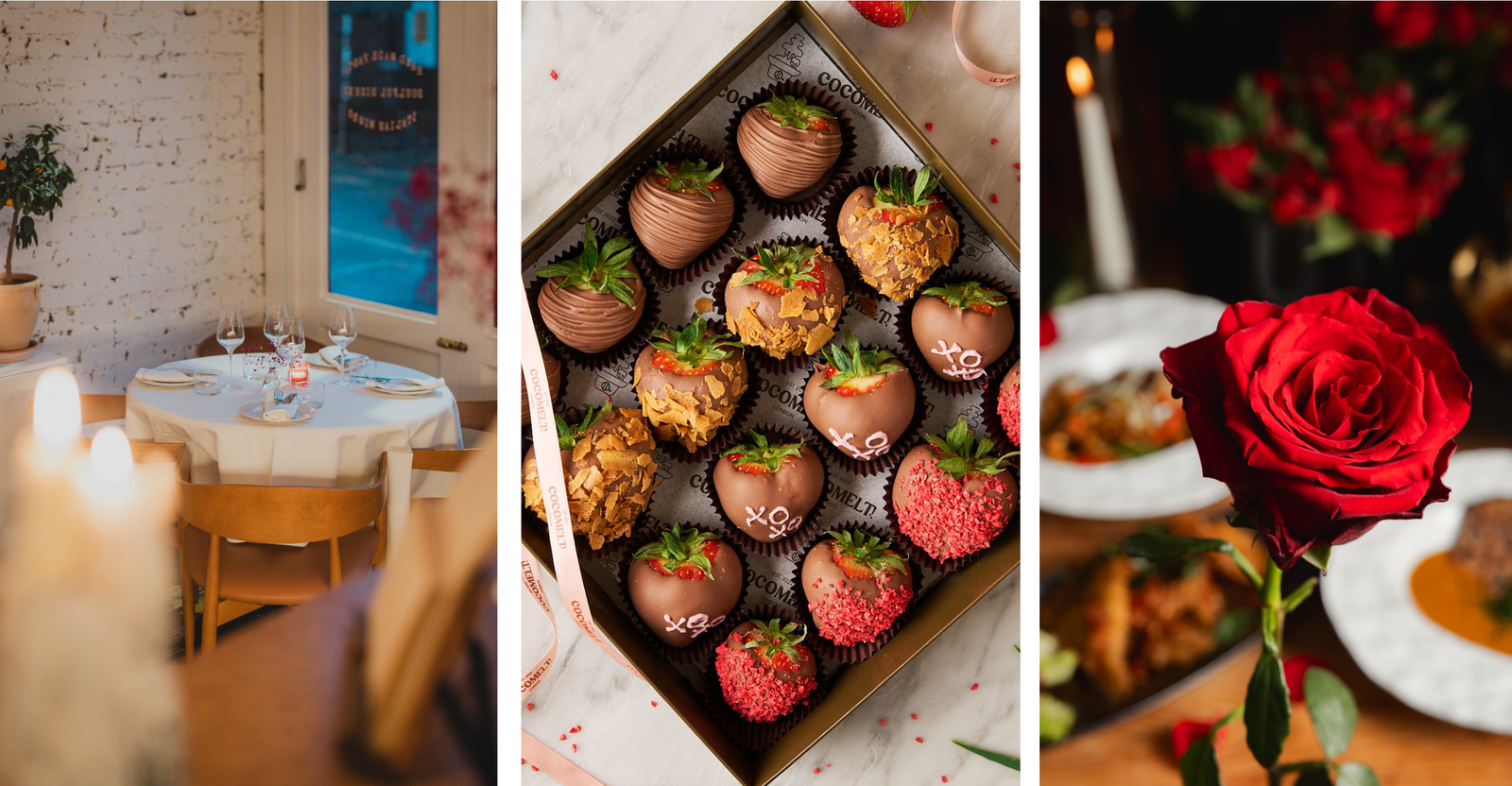The history of tea in India is rather conflicted. Introduced by the British at a time when the nation was non-cooperative; cut to the present where we cannot go out about our day without a cup or two. What started as a “bad thing” is now the most coveted drink and if there’s one brand in particular that has revolutionised the tea culture to suit the Indian palate, it is none other than Makaibari.
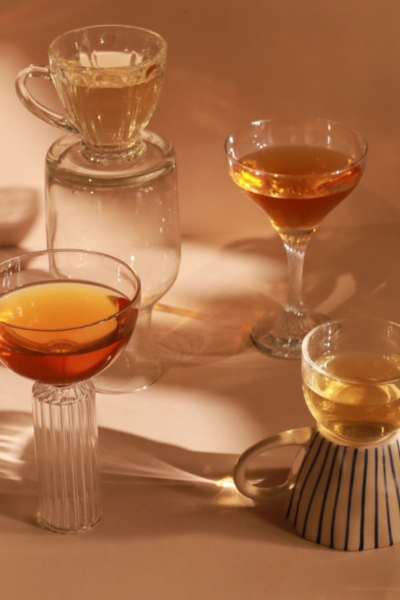
Famed for its 160-year-old heritage of crafting fine organic teas, Makaibari has now introduced a holistic bungalow lifestyle experience to its discerning customers. The jade green walls open into a retail space with curated products from different heritage outposts of Luxmi Estates, the firm behind renowned brands like Obeetee and Makaibari, each representing over a century of craftsmanship. We’re talking an array of fine teas, handcrafted silver teapots, plantation furniture, exquisite home linens, and carpets, all meticulously designed to bring an opulent, handcrafted lifestyle to life – almost like stepping into someone’s home and not wanting to leave without a cup of tea. While the store may resonate as a finer, the history that it carries with it is albeit heavy.

Here’s what we know and love – Established in 1912, when the tea industry was predominantly British, it was under the tutelage of PC Chatterjee that Luxmi Tea became an Indian movement for self-reliance and as an expression of freedom from the British Raj, so much so that it inspired a whole generation of fine tea makers. In all honesty, this retail space is much more than just a store, it is a window into the old-world charm of a bungalow life, where nature, community, and traditional craftsmanship come to the forefront, its presents a stunning collection of handcrafted carpets by Obeetee (a brand rooted in history) and plantation furniture, celebrating both the artistry and the heritage of these century-old brands and their rich legacy exemplifying the philosophy of slow, meaningful living. Designed to evoke the interiors of a planter’s bungalow, the store seamlessly blends indoor and outdoor spaces with warm walnut wood tones, brass accents, and plush handcrafted furnishings. Amidst all its plush cushioning, it is imperative that you look out for the rich legacy that the brand stands for, in every piece that is furnished.
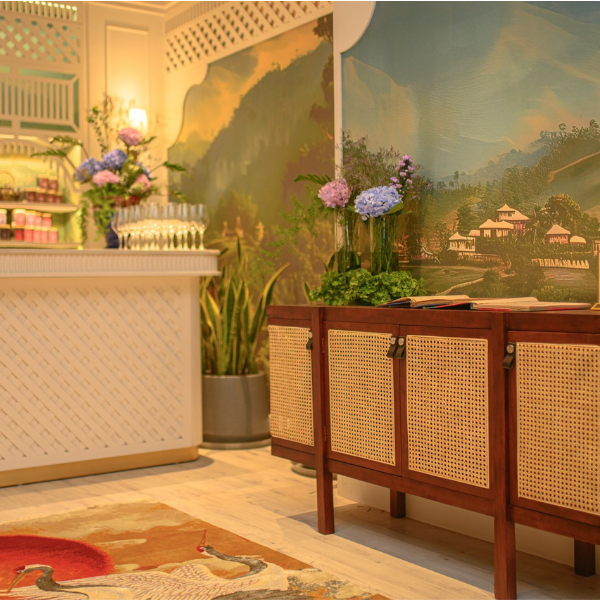

At the heart of the space sits a cosy living room, kitchen, and fireplace, where furniture, carpets, and a curated tea library harmoniously coexist while the store’s scenic balcony, separated by French doors, provide a serene setting for communal tea-tasting sessions. Savour Makaibari’s finest blends while overlooking the beauty of the Himalayan foothills; you’ve really got to give it a try to fully experience the nuances of a bungalow life.

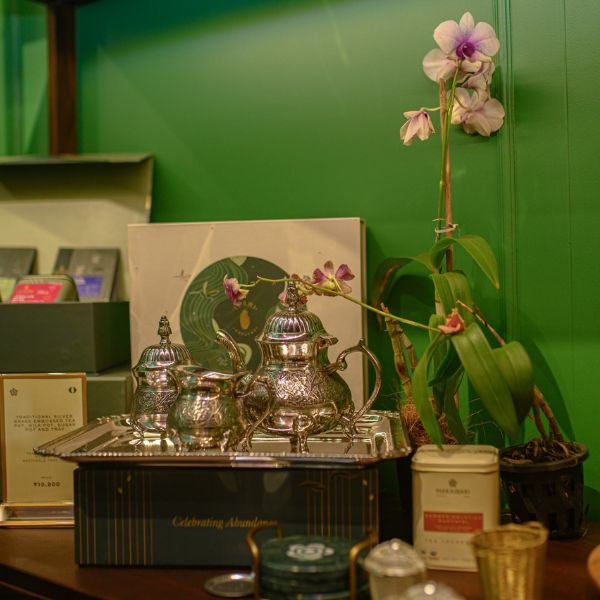
“Makaibari is more than just a tea estate; it embodies a philosophy of living in harmony with nature and heritage. This store reflects our vision of creating a space where visitors can immerse themselves in the timeless elegance of handcrafted luxury, from tea to textiles and furniture. We invite everyone to experience the essence of the Luxmi Group through this cohesive environment — where heritage, craftsmanship, and community come together.” Mr. Rudra Chatterjee, Chairman of Obeetee and Managing Director of Luxmi Tea Group, quipped delightfully.
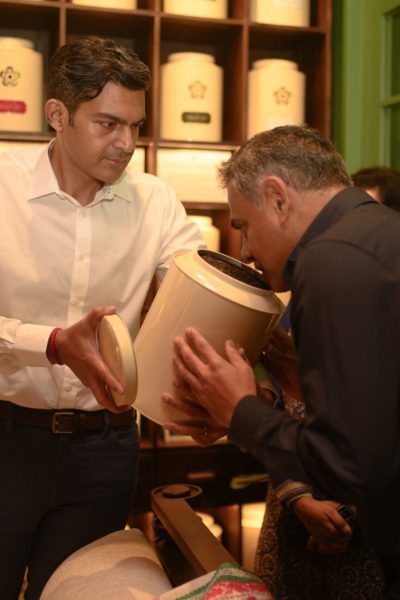
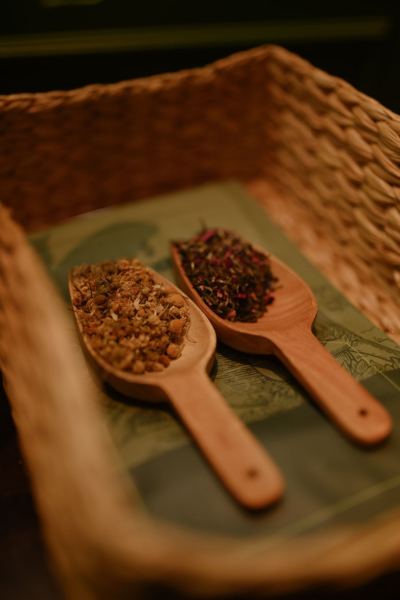
Truly extending beyond exceptional tea blends, the collection at the Makaibari Bungalow includes meticulously crafted textiles such as carpets, cushions, and table linens; elegant home décor items namely tableware, tea ware, and plantation furniture; as well as art and artefacts. Each piece, including the accent furniture, reflects the company’s century-old legacy and commitment to eco-friendly, sustainable craftsmanship, ensuring a positive impact on both the environment and the communities involved, all while harmoniously creating a delightful experience that is inviting. Mr. Chatterjee had very briskly talked about the life of a plantation worker and the store is an extension of that thought. From the moment one enters, it lulls you into a sense of relaxation – the seating arrangement, the paraphernalia, all very mindfully curated. Adding further cultural depth, commissioned Kalighat paintings by Anwar Chitrakaar, son of the renowned Amar Chitrakaar, offers a vibrant tribute to the Makaibari estates, beautifully connecting the brand’s rich heritage with the artistic traditions of the region, all whilst keeping the very core of Calcutta at heart.
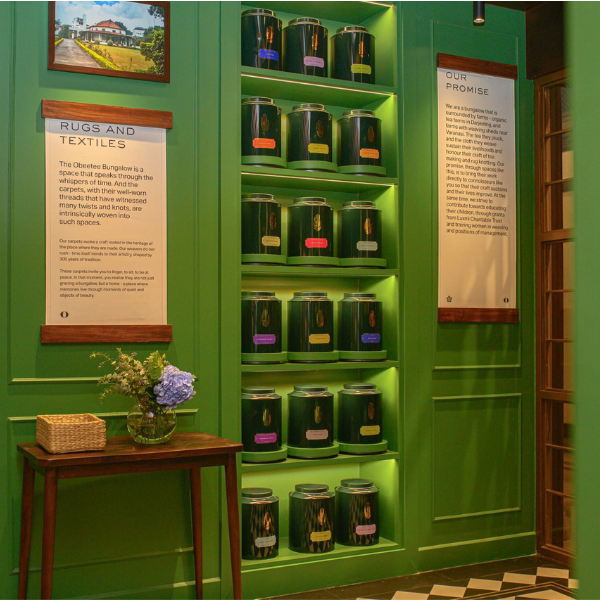
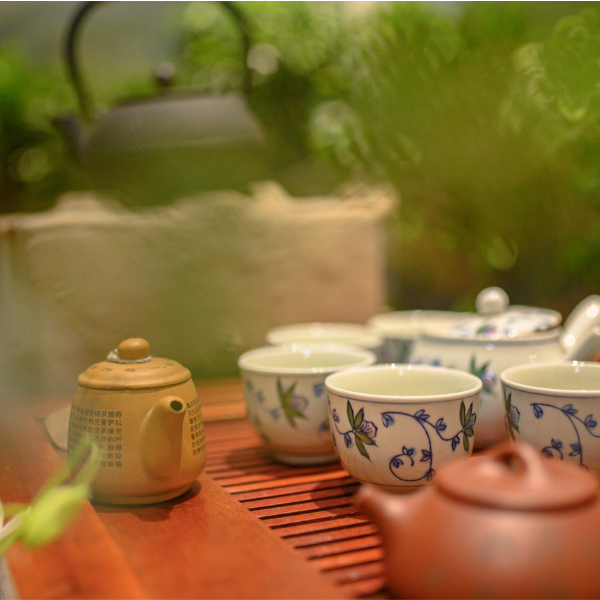
Those seeking to enrich their homes with bespoke, handcrafted luxury or simply to experience a lifestyle that celebrates tradition and sustainability, the Makaibari Bungalow at Taj Bengal offers an unforgettable journey into the heart of Luxmi Group’s enduring legacy and much more than what meets the eye. However what you truly take back home, is a part of history, struggle and the glory that followed. We love.
Images: Makaibari

